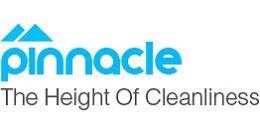TUPE effects the cleaning industry more than you know, but how will it effect you?
For many companies, two main reasons for going out and hiring a cleaning service (or replacing an existing service already) is an overall feeling of unhappiness with the quality of the service provided or they don’t agree with the price they are paying for the service.In most cases, where the cleaning staff and the owners are one and the same, this is an incredibly simple process – all you have to do is tell them that you no longer require their services!
However, what should happen if the cleaning provider is only a company and the cleaners are employees of this? Circumstances like this may become very tricky indeed. If this was to take place, a piece of legislation called TUPE (pronounced toupee) would come into effect – Transfer of Undertakings and Protection of Employees (TUPE) 2006.
TUPE is a regulation in which the rights of the employees are protected when a contract is transferred from one company to another. Employees of the old cleaning company are automatically switched to employees of the new cleaning company on exactly the same terms and conditions as they had when previously employed by the original company. Nothing much changes for the employee, as it is if their contract of employment had always been with the new cleaning company. All of their rights are preserved.
So what does this mean for the new customer who was unhappy enough to re tender in the first place?
The first thing it means is that the cleaning staff will be cleaning the same premises as they were before! It sounds like a very strange idea indeed… You are unhappy with the existing quality of cleaning, so you change cleaning company, only to keep the same staff!
It’s a situation that people find themselves in quite frequently. For larger customers they are already aware of TUPE, so they are not shocked when retold this information, but many smaller customers who want to completely replace their cleaning team are shocked to hear of the rulings of TUPE.
So what exactly can be done?
The first thing to consider is that maybe the employee isn’t particularly to blame for the poor quality of service? In many cases you will find that the fault lies with the cleaning company themselves and their management. In most situations, the cleaners are being left to their own devices with limited guidance, so this naturally results in poor job performance. No supervision, reviews or audits are carried out, so a lot of the time, they don’t even realise they are doing a poor job.
In these instances it’s required to put strong leaders and management in place, implementing quality processes including regular audits with the cleaners, supervisors and the customer. This will improve the service delivered by a vast majority of cleaners, all of who can be turned around quickly. In a lot of instances, they turn out to be fantastic and capable workers who enjoy someone caring about the work they do and they being to take real pride in their work.
Sometimes the employee is not cut out for the job and in this instant they’ll likely never improve. What can be done in this case? As part of the mentioned quality control above, an audit process is implemented into a system of performance which will state what’s expected of the employee, setting timelines for improvement and, importantly, the consequences of not meeting required standards. If introduced correctly, this is a safe way of either the cleaner leaving of their own free will, or in extreme cases, creating a case for dismissing the cleaner due to inability of performing their work duties. In numerous cases, it should be possible to remove a poor cleaner in less than 4 weeks from the time of taking on a contract.
When you consider that staff costs usually make up the vast bulk of cleaning contracts, TUPE has a huge impact here – before being able to bid for cleaning work where TUPE is applied, your new cleaning company must need to talk to all the employees affected by the situation, getting a detailed understanding of their working hours, hourly rate, holiday allowances etc. These costs will become the starting costs for the new cleaning company. This removes flexibility around cleaning costs. The new cleaning company will have to base their cost model, and therefore the value of the contract, around the prices and costs over which they have no control.
In conclusion, if you aren’t happy with your current cleaning service and it’s outsourced, by all means please look at a new cleaning company, but be aware that when evaluating the new company, make sure you fully evaluate and understand their processes and how they intend to ensure that maintaining a quality service throughout the contract term will be undertaken. Be prepared to give the new company a couple of months to address issues caused by the staff they are now bringing in – there is not much they can do in the first week, so set your expectations accordingly. In a few months you will hopefully have the cleaning service you deserve at a fantastic price.
For more on cleaning and industry news, please visit our website.

